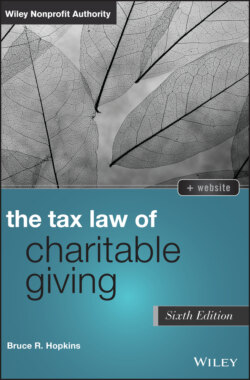Читать книгу The Tax Law of Charitable Giving - Bruce Hopkins R., Bruce R. Hopkins, David Middlebrook - Страница 95
§ 4.14 CONTRIBUTIONS OF REAL PROPERTY
ОглавлениеA person may contribute real property to a charitable organization and receive an income tax charitable deduction. There is, of course, a formal system in law for the recording and transfer of title to parcels of real estate; transfers of real property are generally effected by means of deeds. Thus, the availability of this type of federal charitable contribution deduction may turn on compliance with state law.61
As to the timing of the deduction, the contribution for a gift of real property generally occurs on the date the donor delivers a deed to the property to the charitable donee.62 State law varies as to whether recording of a deed is necessary to make the transfer complete.63
A court denied a charitable contribution deduction for a transfer of real property ostensibly occurring in 1999 because the bill of sale executed on the last day of that year did not result in an irrevocable transfer to the charitable organization involved of legal title to the property because the sale document was not executed in accordance with state law.64 A properly executed bill of sale was delivered to the charity in the subsequent year; that was the year in which the deduction was allowed.
A charitable contribution deduction for a transfer of mortgaged land to a charitable organization by a partnership was denied by a court because the property was subject to a special warranty deed. Under state law, the donor partnership remained liable on the outstanding mortgage. The deed imposed an obligation on the grantor to protect the grantee against adverse claims that might impair the grantee's title to the land. Thus, the court held that the warranty was merely a promise to make payments in the future, with a charitable deduction available when the payments were actually made.65
